 We have a paucity of attorneys in practice in rural Minnesota in general. I’m trying to make a quick list in my mind. In addition to the [Cook] County Attorney’s office, which has two full-time attorneys, we have only two other full-time practicing attorneys here who live and work in the county all year round. – Molly Hicken
We have a paucity of attorneys in practice in rural Minnesota in general. I’m trying to make a quick list in my mind. In addition to the [Cook] County Attorney’s office, which has two full-time attorneys, we have only two other full-time practicing attorneys here who live and work in the county all year round. – Molly Hicken
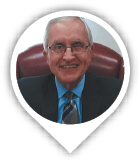 Paul Muske
Paul Muske
Muske, Suhrhoff & Pidde, Ltd., Springfield
To some extent the collegiality between attorneys has changed. It used to be that the annual bar association meetings were a highlight of the year. Over the years I think the attendance has gone down, and frankly I’ve attended less. But I think we’ve maintained a very cordial arrangement. We still have relationships where we can trust each other not to lie or cheat or anything like that. If the other attorney in town says, I’ll bring you over the check and you mail me the deed, we know it’s going to happen. So we do have good relationships with the other attorneys.
One thing I noticed about 10 years ago was that many of us were getting older, and I was concerned that the availability of legal services in rural areas was going to vanish, but we have had some younger attorneys come out to the rural area to fill the gap as some of us reach the age where we aren’t going to work anymore or work as much.
It’s been a struggle. Over the years we’ve had a number of associates who have been with us for two to four years and gained experience and then moved on to larger communities. I think there’s a lot of pressure on younger attorneys because of student debt. Economically our practices are not going to be as lucrative as practices in Mankato or the Twin Cities. I think that’s a hindrance for some younger attorneys. But it does seem like we are able to retain an adequate supply of younger attorneys in the area.
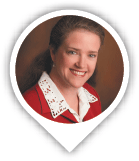 Barbara Heen
Barbara Heen
solo practitioner, Willmar
If you look at how the MSBA is structured, there are district bar meetings that I used to attend more often, but the camaraderie there is between a lot of people who do traditional law—the people who litigate and have a lot of court experience. I kind of don’t, and so my colleagues really have arisen more from the [MSBA] subject matter sections—the Solo Small Section, the Greater Minnesota Practice Section. The MSBA structuring itself with the 23 district bars and then the subject matter sections—it means that one way or the other, you can find your way to a group of solid colleagues.
If you’re on the MSBA communities at all, there are probably a dozen key people who are significant contributors on the solo small community, or the estate and probate community. Similar names keep coming up. The MSBA communities—because I am a solo practitioner, I don’t have colleagues down the hall to bounce ideas off of, so I had to get pretty creative in deciding, okay, who is my team? The MSBA communities are a marvelous resource that I think everybody needs to participate in.
The caution in trying to attract attorneys in rural areas is, these kids are coming out of law school with between $100,000 and $200,000 in debt. They have a certain amount of money they absolutely have to earn in a month. They can’t miss. So it’s a very difficult proposition to stand here as a 20-year veteran and say, Patience. They don’t have a lot of time. They kind of need to be making money that first year. The more strategic a person can be about their budget and their finances—what do you honestly have to have? Well, food and a roof.
In greater Minnesota, at least western Minnesota, longevity is rewarded. You need to go and decide that life is going to stink for several years, and you’ll need to be satisfied with the fact it’s hard to find clients. It’s hard for people to understand who you are. It takes time to build that name value in the community. But if you’re willing to stick it out, it does grow in time. My practice was never huge, but my 2017 revenue was significantly higher than my 2016, and my 2018 went up very rapidly. As I look around, I think it has to be attributed to longevity and community involvement. When people are finally convinced you’re going to stick around a while, they’re going to be with you.
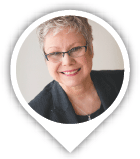 JoEllen Doebbert
JoEllen Doebbert
solo practitioner, Alexandria
I was at the [MSBA] One Profession meeting in Willmar, and a lot of the same issues that were important to me as a relatively young attorney remain important to new grads today. One important change since the mid-80s, however, is the huge increase in tuition at law schools—I think I paid $5,000 a year going to William Mitchell at night. I don’t remember having difficulty paying off my student loans. I don’t even remember paying off my student loans. In Willmar, one gal was saying she graduated with $160,000 in student loans 15 years ago, and she still has $90,000 to pay. Her student loan payment is $1,400 [a month]. I just can’t even fathom that.
I remember—it was at least 15 years ago, and there was a lovely young couple that joined our church, and they really didn’t feel they could stay out in this area, because they were both attorneys and they both had student loans. They would have loved to stay; I think she was from this area originally, and he wanted to go where she wanted to go. But they both could not find jobs here that would pay their student loans.
 Steve Besser
Steve Besser
Dolan & Besser, Litchfield
In this bar district, the collegiality is still good. It’s easy to pick up the phone and call one of the other people and say, hey, how are you doing? How are the kids? And can we get this one settled or are we going to have to fight? But—maybe this is just my perception—it does seem that there are fewer people hanging around after the [bar] meetings for a couple of hours talking. It does seem like lately there is less participation in the meetings. I don’t know if it’s because the upcoming generation is not into that; I don’t want to blame them. I don’t know if it’s attributable, maybe, to technology—people stare at their phones and send texts. We’ve still got collegiality in this district, but the older generation is fading out and I don’t know that the younger ones get together that much.
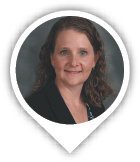 Michelle Zehnder Fischer
Michelle Zehnder Fischer
Nicollet County Attorney, St. Peter
I have conversations with my colleagues in private practice about their ability to attract individuals to come to work here. The challenge sometimes is not finding individuals to start working, but getting them to stay. They gain their experience and then they seem to want to move back to the metro or to larger counties to work. I’ve been fortunate that my paralegal staff is very stable, and most of the assistant positions have been stable. But I’ve certainly seen the impact of the metro’s draw. [Laughs]
The bar seems less collegial than when I first started. I think there’s less time spent together outside of office hours, because the demands on our time have increased. Our family lives have changed, the activities our children are involved in have changed. It seems like we’re a lot busier outside our practices than we were before.
And that bleeds over into how we practice inside the courthouse. I think there’s less recognition, perhaps, that everyone has a job to do and it shouldn’t be made personal. It just seems like some of the collegiality I witnessed when I first started doesn’t seem to be in place today. I hear colleagues talking about arguments and disagreements straying into becoming more personal. I haven’t been able to put my finger on a single cause, but it is troublesome when I look at the relationships people have across the practice. I’d like to see it change.
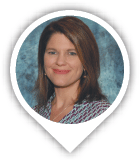 Molly Hicken
Molly Hicken
Cook County Attorney, Grand Marais
We have a paucity of attorneys in practice in rural Minnesota in general. I’m trying to make a quick list in my mind. In addition to the county attorney’s office, which has two full-time attorneys, we have only two other full-time practicing attorneys here who live and work in the county all year round. We have two other attorneys I can think of who work part-time in Cook County or are partially retired. We have zero public defenders at this time who live and work in Cook County.
For our criminal case load, since the early 2000s it’s been the case that if you required a public defender, that would mean the person was driving up from Duluth every two weeks, essentially, for your court dates. That would be the most often you would be able to see them. Because the rest of the time they’re in Duluth working their Duluth case load. You would have to drive to Duluth to see your attorney or wait for them to come up here for your case. It’s not ideal. The public defender’s office works really hard and their attorneys are really good, but when that’s the set-up, you’re missing a crucial connection to the community that’s important in understanding the cases and the individuals involved. Duluth is a two-hour drive away, and it’s a lot different from Cook County.
The latest solution to this problem is that one of those two full-time practicing attorneys up here is a new attorney named Tyson Smith, and he’s taking everything he can get in terms of types of cases. He’s partnering with the public defender’s office to get another attorney working full-time in Cook County. Part of their case load will be private work through Tyson’s office, and the other part is public defender work. So there will be a part-time public defender actually living and working on the North Shore for the first time in 15-plus years.
One way I would say our office has changed in the last 12 years is security of courthouses—our courthouse specifically, but it’s a broader trend. It’s not just the big courthouses that need security anymore. It’s a statewide movement to get government workers and workers in the court system to feel safe and to be safe from hostility. Our example here [the shooting of Cook County Attorney Tim Scannell in December 2011] is the worst-case scenario of what can happen—somebody brings a gun and literally tries to kill somebody. There was a statewide initiative for courthouse security that Chief Justice Gildea led, and that led to some grant funding.
Courthouses are an interesting financial partnership between the state and counties. They must share the cost of court operations. So the counties run the capital asset of the building, but the court staff is employed by the state of Minnesota judicial branch. So what the chief justice was interested in was finding a way to more uniformly treat court staff across the state so that everybody was protected on some basic level. But they really only fund the staff. So it took a partnership between the counties and state, and what they came up with was this grant program. A lot of rural courthouses found the funds through the grant program to make some improvements. But the grant funding was available for a limited time, and it’s not ongoing. It needs to be, in my opinion.
What happened here was an eye-opener—that kind of violence doesn’t only happen in densely populated places, and rural courthouses can be particularly vulnerable to those attacks.
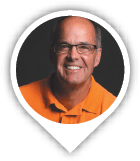 Steve Peloquin
Steve Peloquin
Peloquin Jenson PLLC, Park Rapids/Perham
If you look at my little firm here, we’ve gone through a number of people over the years. I’m working with mostly women. I have young moms, and because of the technology we’re a lot less formal in terms of, well, you punch in at 8 and you punch out at 5. That doesn’t work when your kid’s sick and the daycare says, get them out of daycare.
Clearly, women in the legal profession in the rural areas are becoming more prevalent. There are a lot of them. And the practice style is really changing because taking care of families is involved. A lot of them are responsible for raising families, and as a result, trying to juggle career and family—they really need the flexibility. That’s been a big change, too. It’s good they can work from home: Here, I’m going to grab my computer and go, and I’ll email you the contract I’m working on, but I’ve got to go home and take care of something. So my firm is different in the way we interact. When are we going to see each other? Well, it’s been a couple of days—I’ve been in court, or I’ve been on the road.
I can recall, up to 10 or 15 years ago maybe, walking into courtrooms and talking to judges, talking to bailiffs, talking to defense counsel or the prosecutor, and saying, hey, what’s going on? Hey, can we do this, can we resolve this? Hey, judge, how you doing today, how was your weekend? How are you doing, Harry the prosecutor? We got a bunch of DWIs here, what can we do about Joe Smith? Being able to do that has been virtually eliminated. We have more [concerns] with courthouse security now, and justifiably so. I’m probably more scared to walk into a courtroom now than I’ve ever been. I’m not saying I’m scared all the time, but I’m mindful of it. Twenty years ago I never would have said to a bailiff, hey, keep an eye on this client. I don’t know what’s going to happen. But I’ve had that conversation more in the last five years.
Then, too, there’s been pressure for transparency, to have everything out front. I get that. But the informality that often made the system run nicely—not all the time; sometimes it was really abused—has changed. Some people might say that’s a really good thing. Okay, fine. I take no position on it except to say that it’s changed. I have hardly any interaction with judges, for example, except when I’m on the record in the courtroom. That’s true of a lot of the lawyers too. Yet when you bump into a lawyer and you take five or 10 minutes chance to talk, you find you’re hungry for that exchange of communication—the gossip, the what’s going on in your life, the talk about dealing with a difficult client. If you’re a solo, who else have you got to talk to?
 Antonio Tejeda Guzman
Antonio Tejeda Guzman
Tejeda Guzman PLLC, Willmar
The workers’ comp bar is very closely related. We all know each other or at least of each other, we’re all friendly to each other. We fight when we have to fight, but it’s a very collegial bar. If I say there are 500 of us in the state, that’s probably an overstatement. But because I only do workers’ comp, I need to know people who do PI, people who do product liability, people who do malpractice, people who do immigration. So I go out of my way to meet people who do other areas and I get to know them, because I get all kinds of calls and I need to be able to send people that way. If Maria comes to me for a referral, I want to be able to send her to a place that will treat her well, because now my name is involved in the mix. I do have to go out of my way to be sure that attorneys are going to be culturally competent in dealing with the population that I deal with. I like to think I have a fairly good network of people. It works well.
I wish that there were more lawyers like me out there, doing what I do. There’s a great need and it’s a great way of making a comfortable living. It’s a clean way of making a living, and to the extent law students read your magazine, I hope that they look at workers’ compensation and that they look at outstate. To them I would say, reach out to us. We’re out here. People in the Cities, they just don’t see anything beyond the 13 counties. I lived there when I was a judge, and it’s a huge disconnect. There’s a whole world out here. Just reach out to us.
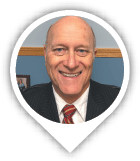 Robert A. Woodke
Robert A. Woodke
Brouse, Woodke & Hildebrandt, PLLP, Bemidji
Going clear back to 1977, my first introduction to a county bar association was in Lyon County, Minnesota—Marshall. Every month all the lawyers and their wives got together and they had the county bar association meeting. Had a cocktail hour, a nice meal. There was a lot of exchange of useful information, lot of informal discussions. It always had an educational component. And virtually everybody in the legal profession in that community attended unless they were ill or out of town. The Beltrami County Bar Association, when I came to Bemidji, didn’t operate in quite the same way, but we had regular meetings with 20 or 30 people. The judges would come, the law clerks, and most of the lawyers in town. You have to understand, I was the 16th lawyer to come to town, so that was very good attendance.
Now we have a bar association meeting and we might have eight or nine people at it. Attendance has really fallen off. The judiciary, for the most part, doesn’t participate. It’s become more balkanized.
 Angela Sipila
Angela Sipila
solo practitioner, Virginia
Ten years ago they started having young lawyer meetings and I refused to go because I wasn’t young. I was in my 40s. It was for the 30-somethings. But I’d go to introduce my new associates; I did that three or four times. Now it’s morphed into a women lawyers’ get-together. I’ve been to a few of those, and they’re very important. We loosen up a little and get to know each other as people.
But it’s not the same level of collegiality that I remember from those first Range Bar meetings twenty years ago, where the lawyers were there to tell jokes and unwind. The Range Bar is still full of wonderful people, but they are not joking and raucous. The amount of time we spend texting and emailing detracts from the amount of time we used to have to spend talking. And you’d get good at it and you’d want to show off your conversational skills. I feel like a freak after the meeting—like, after the meeting, people are muttering, yeah, she talks too much.
I used to be on my church council board, and we had a retreat. The bishop came in—this is back in 2014—and he said, church has changed. Ten years ago we surveyed people, and the majority of people who were members of our church would say it was very important to come to church every Sunday. That’s gone. It’s now very much a minority who say it’s important to come every Sunday. The vast majority of people coming to church feel it’s optional. Which fundamentally changes church.
It’s the same concept here with the law. Three years ago, people fundamentally felt that they would need a guide in the legal jungles or they would get lost. They felt that the lawyer was a critical part of it. With every year that goes by, we are closer to the tipping point where people will not feel that the lawyer is an integral part of the legal process. People can go on a website and get their work done, maybe have a typed chat with a reviewer who reassures them, and that’s enough. I’m competing with that typed chat review.